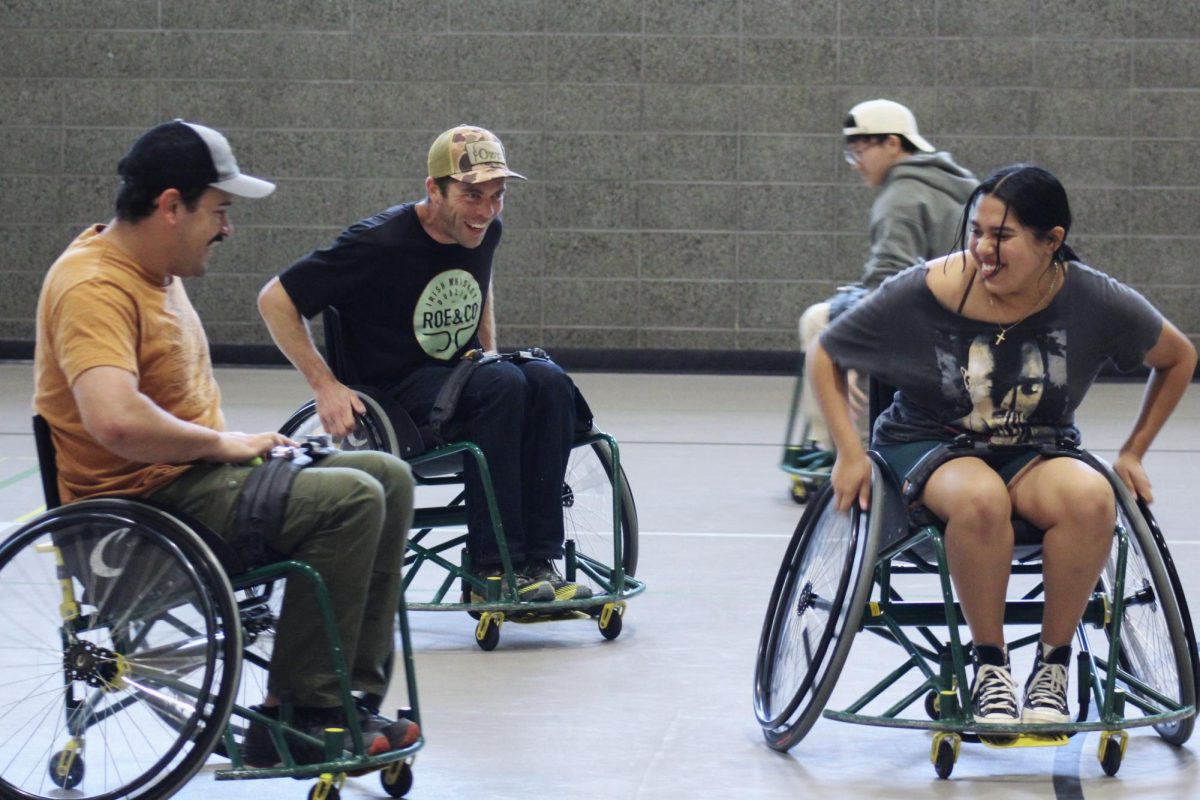On Aug. 29, 2025, Sacramento State President Luke Wood issued an update with resources for students concerned about the presence of the U.S. Immigration and Customs Enforcement on campus.
In April 2025, the California Faculty Association reported that at least 70 international students across the California State University system had their visas revoked without warning, causing uncertainty and fear among students. According to The Sacramento Bee, several students had their visas status restored after the initial bans, including 15 CSU students.
According to the Immigration Information Resources page, Sac State is committed to maintaining a “safe, supportive and inclusive” environment for all students, including undocumented, immigrant and international students.
Wood’s message said that Sac State has designated administrators, clear policies and resources in place to protect the rights of the university’s undocumented and international students. According to Sac State’s podcast Beyond J, there are between 500 and 600 students who are undocumented, excluding students who come from mixed-status families.
Students have shared their concerns about ICE presence and potential visa revocations, which affects both politics and personal life on campus. A senior psychology major – who requested anonymity due to the sensitivity of the issue – mentioned their reaction to Wood’s email and how relieved they felt after knowing of the resources set up for students at Sac State.
“I think my first reaction to the message is definitely a little bit intimidated because it was ICE-related, and I resonate with it pretty heavily,” the psychology major said. “But once I read through it thoroughly and processed the information, I think it helped to ease the sensation, as there is support at school. I definitely think that it feels safer, which is really reassuring.”
RELATED: FAQ: What to do if ICE comes to Sac State
Florencia Dufey is a junior international student from Chile and member of Sac State’s golf team. Dufey said that, as a Latina international student, the email both surprised and concerned her, in relation to the anxiety many international students feel regarding ICE presence on campus.
“I think a lot of students are not getting as involved in campus and campus activities because they may be afraid that something could happen to them,” Dufey said.
Dufey said her case is different as an athlete. However, she said she has friends in Argentina who are also under the same scholarships and have struggled to renew their visa this year. She said ICE presence can affect Latinx and international students’ sense of safety and belonging on campus.
Manuel Barajas, a professor of sociology at Sac State who specializes in immigration and Chicano studies, said that he is concerned about resources not being enough support for students due to the seriousness of the situation.
“Students are facing fears [and] traumas that require more institutional support in the form of legal representation, counseling, financial aid, academic accommodations, housing, etc,” Barajas said. “These social insecurities hurt learning conditions. Two university designees are also not enough to address timely and expert interventions with the rapid and messy ICE activities.”
A junior music major – who spoke on condition of anonymity out of concern for her safety – said students need to feel safe and be protected by the university, especially regarding immigration concerns.
“I just feel that we all have rights, and I think that everyone should be protected,” the music major said. “I mean, we’re students here and it should be a safe haven to come on campus and feel comfortable and not intimidated.”
Barajas expressed a concern for students’ mental well-being while dealing with ICE.
“When you are a Brown person, going into an academic space that might be targeted by ICE [and] border patrol, you do not feel welcomed,” Barajas said. “Historically, Chicanxs slash Latinxs have been transformed from natives to aliens in their continental homeland.”
A sophomore health science major – who wanted to remain anonymous for safety reasons – said that Sac State can do more to spread information around campus on how important this issue is beyond just email statements.
“As students, we get multiple emails a day, so things like that can go unnoticed in my inbox, but if I heard it mentioned from a professor or saw a flyer on campus it would definitely get my attention,” the health science major said.
Wood’s email included contact information of administration that students can reach out if they observe or are approached by ICE officers. The email also included a link to download and print out a Know Your Rights card, which can be used if approached by ICE agents.
Dufey also said that, while she feels the administration is making progress, they could still find more ways to alert students if ICE is on campus.
“I think [campus administration] are doing a good job. Personally, I don’t really know if ICE has already been on campus or not, but if they were to come it will be a good idea if the school could send some kind of alert to students,” Dufey said.
Barajas concluded by highlighting the role of Sac State’s Center on Race, Immigration and Social Justice.
“The Center is focused on producing critical knowledge on these issues and engaging with the on-and off-campus communities,” Barajas said. “It’s about building bridges of understanding, empathy and motivation to create a safer and healthier society for everyone.”
As CSU campuses have been affected by immigration enforcement, the CSU administration offers online resources as immigration information and support for students, faculty, and staff.
According to LAist and the Los Angeles Times, other campuses have taken different initiatives for faculty to accommodate affected students, like offering online class options and providing information. While California State University Los Angeles. made headlines for allowing online classes, other campuses like California State Dominguez Hills highlighted a broader pattern of flexibility and compassion in supporting students facing uncertainty.
The psychology major said that it is important for students to turn to each other for support.
“I think more people should try and come together about the subject because I know how scary it can be,” the psychology major said.






































































































































